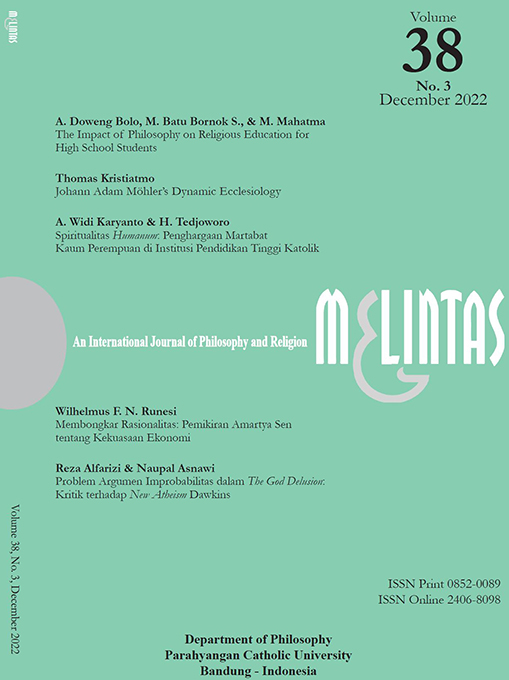Problem Argumen Improbabilitas dalam The God Delusion: Kritik terhadap New Atheism Dawkins
DOI:
https://doi.org/10.26593/mel.v38i3.7409Keywords:
critical realism, Dawkins, existence of God, improbability argument, new atheismAbstract
This article aims to criticize the improbability argument put forth by Dawkins, which serves as the central thesis in the new atheism. Dawkins uses this thesis to justify religion as the root of evil and violence, while also forms the basis for the denial of the existence of God. The improbability argument fundamentally has some issues ontologically, epistemologically, and ethically. Dawkins constructs the improbability argument by referring to his explanation in “The Ultimate Boeing 747” and the theory of natural selection, in which he considers creation from nothingness to be as improbable as the spontaneous formation of a Boeing 747 from a tornado’s debris. Dawkins also criticizes the NOMA perspective that positions Science and Theology as equals. Through the framework of critical realism, this article demonstrates the philosophical problems in Dawkins’ improbability argument, which reduces reality (ontology) based on subjective perception (epistemology), and thus obscuring the uniqueness of natural phenomenon and negating the existence of God. Alternative ethical perspectives regarding religion and God are presented to address Dawkins’ accusations to religion as a source of evil and violence.
Downloads
Published
Issue
Section
License
Copyright (c) 2023 Reza Alfarizi, Naupal Asnawi

This work is licensed under a Creative Commons Attribution-NonCommercial 4.0 International License.
MELINTAS applies the Creative Commons Attribution (CC BY NC) license to articles and other works we publish. If you submit your paper for publication by MELINTAS, you agree to have the CC BY NC license applied to your work.


